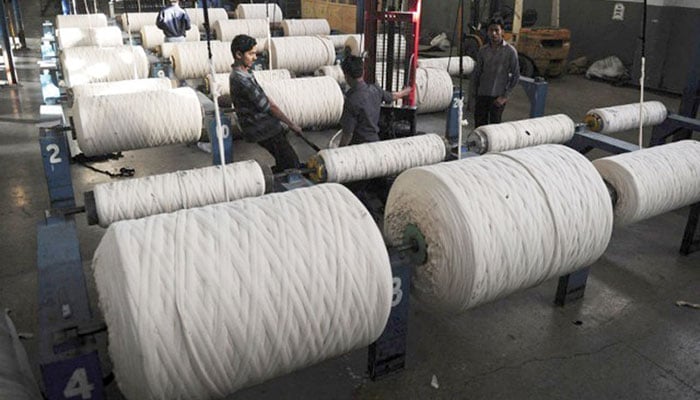Industry struggling to stay afloat during coronavirus lockdown in Pakistan
The industrial sector says it is struggling to stay afloat amid the lockdown due to lower production, rising cost of doing business
KARACHI: For the local businesses in Pakistan, losing exports is no longer a primary concern as the country struggles to contain the coronavirus epidemic.
The industrial sector says it is now struggling to stay afloat amid the lockdown, with growing numbers of industrialists, already burdened with multiple taxes, higher interest rates and utility charges, expressing their inability to pay workers next month.
For the industrialists, the ongoing lockdown has led to income erosion and additional cost of doing business, as they have to pay salaries and arrange rations for idle workers and daily wage earners.
According to the Chairman of the Council of Textile Associations Zubair Motiwalla, businesspersons were facing a severe liquidity crunch due to industry shutdown.
“The government should share 50% of the salaries of our employees out of the Workers Welfare Fund (WWF). The money in this fund, amounting to billions of rupees, is our money and should be utilised at this time of crisis,” he said.
President SITE Association of Industry Suleman Chawla also called for the utilisation of EOBI and WWF funds for industrial workers to protect them from starvation.
“Industrial units contribute billions of rupees on account of EOBI and Workers Welfare Fund, which is lying idle in banks. This is the time to utilise these funds and compensate workers,” Chawla said.
According to Agha Shahab, President Karachi Chamber of Commerce and Industry (KCCI), the body was receiving several appeals from different sectors and industrialists who found the situation "extremely difficult".
Industrialists say the lockdown poses a threat to their survival due to sluggish production and additional cost of paying wages to an unproductive workforce.
The business community is also of the opinion that most of the relief measures and initiatives taken by the provincial and federal governments so far will not yield the desired results as they do not cover all industries and businesses.
This is why the business community is urging the government to look into the possibility of a proposed 50% reduction in all tax rates, interest rates, utility charges and petroleum prices for three months.
President Union of Small and Medium Enterprises (UNISAME) Zulfiqar Thaver said the SME sector was the worst affected due to the lockdown and urged the government to reschedule the sector's debt.
Thaver also criticised the government’s decision to shut down bakeries and urged the authorities to reconsider this decision.
Pakistan’s economy is projected to face a loss of up to 4.64% of gross domestic product (GDP) because of disruptions in trade, both imports and exports, after the outbreak of COVID-19.
The Ministry of Planning has assessed losses at Rs 1.2 trillion in a limited lockdown scenario, Rs 1.96 trillion in a moderate and Rs 2.5 trillion in case of complete restrictions on movement, which symbolises a curfew-like situation.
-
Security forces gun down 30 terrorists in multiple IBOs in KP: ISPR
-
MQM-P calls for new province in Sindh
-
US report validates Pakistan military edge over India: PM
-
Banned TTP poses serious threat to Pakistan security: UNSC panel
-
CM Afridi clarifies remarks on by-poll after ECP requests army deployment
-
Dubai sees 3.2m Pakistani passengers in 2025 as airport sets new milestone
-
Security forces kill 23 Indian proxy terrorists in KP's Kurram
-
Pakistan to construct island to boost oil exploration: report












